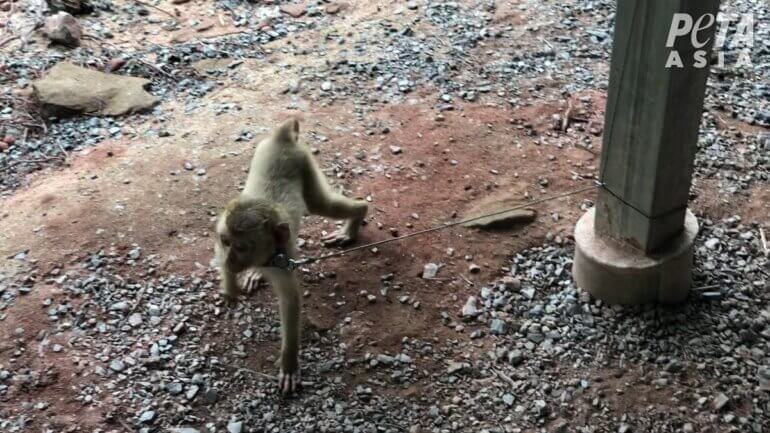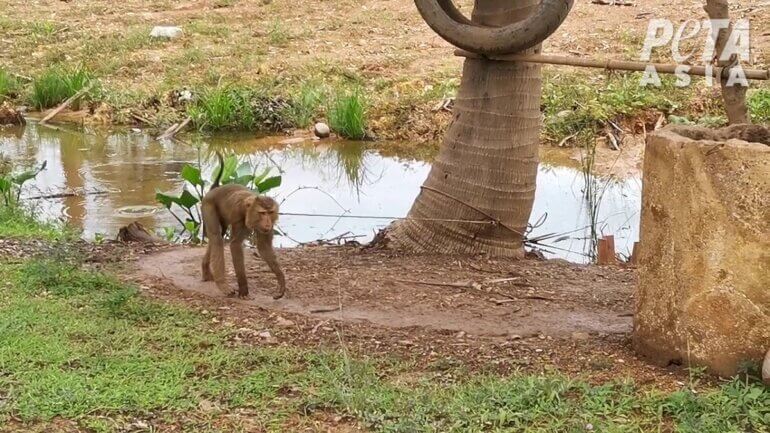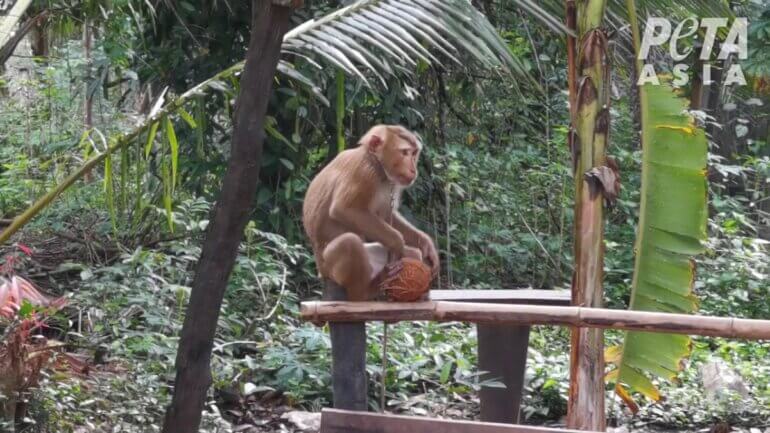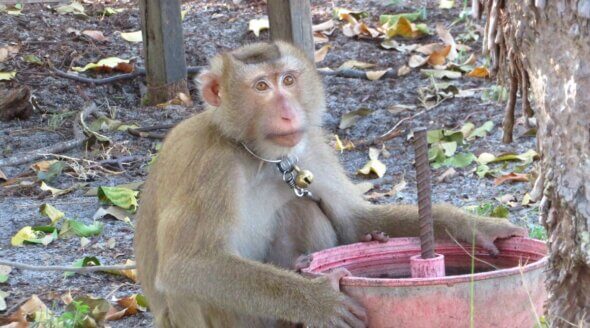New Footage Exposes Monkey Labour Cover-Up in Thai Coconut Industry
Going back to Thailand one year after PETA Asia exposed the use of forced monkey labour on Thai coconut farms, investigators have now found that manufacturers and the Thai government are lying to the public and importers about monkey use, which continues despite false claims and empty promises.
In a new video, industry insiders discuss how farms simply hide monkeys until auditors leave or buy monkeys without registering them, even though registration is legally required. Of the 14 coconut farms that PETA Asia investigators visited in 2020, half were still confirmed to be using monkeys, including two farms visited the previous year. As for the rest, because farmers can hire contractors to bring in monkeys only during harvest time, it’s nearly impossible to know whether they’re monkey-free.
PETA Asia found that any audits or visits by inspectors were announced to farmers in advance, giving them time to conceal the animals. One farmer who uses monkey labour told investigators that Chaokoh representatives didn’t tell farmers to stop using monkeys.
In response to this new information, PETA and our affiliates are turning up the pressure on the Thai government to hold the coconut industry accountable. And we will continue to push retailers to reconsider their relationship with Chaokoh, too. More than 26,000 international stores have banned coconut milk brands that use coconuts picked by monkeys.
Help Monkeys
Please make sure that your coconut products don’t come from suppliers that use monkey labour. Avoid Chaokoh and all coconut products from Thailand that are made with coconuts picked by monkeys. In general, coconut products originating in Brazil, Colombia, Hawaii, India, and the Philippines are supplied by companies that don’t use monkey labour.
And please sign our action alert to urge Chaokoh to stop supporting this cruel industry by obtaining its coconuts from companies that don’t use monkeys.







